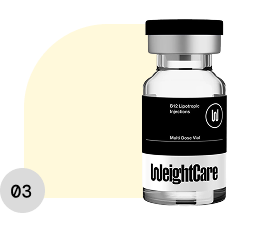Hormonal Balance: Can GLP-1 Help Post-Menopausal Weight Gain?
Let’s talk about something many of us face—menopause. It’s a natural part of aging, but that doesn’t make it any easier to deal with, especially when it comes to those stubborn pounds that seem to creep up around your midsection. For many women, menopause brings not only hot flashes and mood swings but also unexpected weight gain, making it tougher to maintain the figure and health you’re used to. But here’s the good news: GLP-1 medications, like semaglutide and tirzepatide, could be a game-changer when it comes to managing post-menopausal weight.
In this post, we’re going to break down exactly what happens to your body during menopause and how GLP-1 medications might help you regain control over your weight and your health.
What Happens During Menopause?
Menopause is a natural transition in every woman’s life that marks the end of her reproductive years. It usually starts in your late 40s to early 50s, but everyone’s timeline is a little different. As your body goes through menopause, your hormone levels—particularly estrogen and progesterone—take a significant dip. This drop in hormones can throw a wrench into your metabolism, making it easier to gain weight and harder to lose it.
Here’s a quick look at some of the changes menopause brings:
- Slower Metabolism: With lower estrogen levels, your metabolism slows down. This means your body burns fewer calories at rest, making it easier to gain weight.
- Fat Distribution: You might notice that weight starts to gather around your belly, hips, and thighs—places where you may not have carried extra weight before.
- Increased Insulin Resistance: Menopause can also lead to insulin resistance, which makes it more difficult for your body to regulate blood sugar levels. This, in turn, can contribute to weight gain and increase the risk of developing type 2 diabetes.
So, what can we do about it? That’s where GLP-1 medications come in.
How GLP-1 Medications Can Help Post-Menopausal Weight Gain
GLP-1 medications, like semaglutide and tirzepatide, were originally developed to treat type 2 diabetes by regulating blood sugar levels. However, they’ve since been found to offer impressive weight loss benefits. Here’s how they might help you manage the weight gain that often comes with menopause:
- Boosting Metabolism: GLP-1 medications help increase your body’s insulin sensitivity, which can improve how your body handles glucose (sugar). This can counteract some of the metabolic slowdown caused by menopause, making it easier to maintain or even lose weight.
- Appetite Control: One of the main benefits of GLP-1 medications is appetite suppression. By helping to reduce hunger and cravings, these medications make it easier to stick to a balanced diet and avoid overeating—two major factors that become more challenging during menopause.
- Targeting Belly Fat: For many women, the most frustrating part of post-menopausal weight gain is the accumulation of belly fat. GLP-1 medications help reduce fat, particularly around the abdominal area, which is often the toughest spot to slim down after menopause.
Testimonial from Maria R.:
"After hitting menopause, I couldn’t seem to keep the weight off, especially around my middle. I tried everything, but nothing worked. My doctor suggested semaglutide, and it was a game-changer. Not only did I start losing weight, but I also felt more in control of my appetite. For the first time in years, I didn’t feel like my body was working against me."
Hormonal Balance and Mental Well-Being
Menopause isn’t just about physical changes—it can affect your mental health, too. The hormonal shifts during this time can lead to mood swings, anxiety, and even depression. While GLP-1 medications aren’t a direct treatment for these symptoms, the improved sense of control over your weight and health can certainly have a positive impact on your mental well-being.
When you feel more confident about your body and your health, it can lead to better self-esteem and less stress. Plus, managing weight gain through GLP-1 medications can help reduce the risk of related conditions, like heart disease and diabetes, which are often more of a concern after menopause.
Managing Post-Menopausal Weight with GLP-1 Medications
If you’re finding that traditional weight loss methods aren’t working as well after menopause, you’re not alone. The hormonal changes that come with this stage of life make it tougher to lose weight, but that doesn’t mean it’s impossible. With GLP-1 medications, you might find the boost you need to regain control of your body and health.
Here’s What You Can Do:
- Talk to Your Doctor: If you’re struggling with post-menopausal weight gain, bring up the possibility of using GLP-1 medications with your healthcare provider. They can help you decide if semaglutide or tirzepatide might be right for you.
- Focus on Nutrition and Exercise: While GLP-1 medications can help suppress your appetite and boost metabolism, it’s still important to follow a healthy diet and stay active. Aim for a balanced diet rich in fiber, lean protein, and healthy fats, along with regular physical activity.
- Be Patient with Yourself: Menopause is a significant transition, and your body is going through a lot of changes. Give yourself grace as you adapt to this new phase of life and remember that every step you take toward better health is progress.
The Bottom Line
Menopause brings many changes, but weight gain doesn’t have to be one of them. GLP-1 medications can offer a much-needed boost for women struggling with post-menopausal weight, helping to control appetite, reduce belly fat, and improve metabolic health. While menopause is a natural part of life, it doesn’t mean you’re powerless in your weight loss journey.
If you’ve been feeling frustrated or discouraged by post-menopausal weight gain, know that there are options available. With the right tools—like GLP-1 medications—and a healthy approach, you can take control of your body and your health during menopause and beyond. Listen to our new Weightcare Podcast, "Menopausal Weight Gain and Weight Maintenance with GLP-1's - Guest Dr. Preston"



